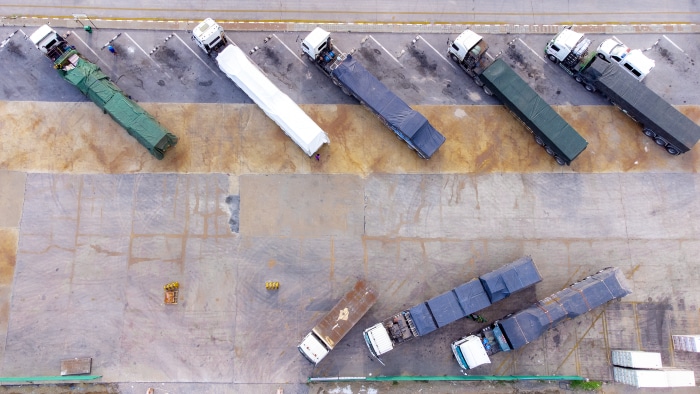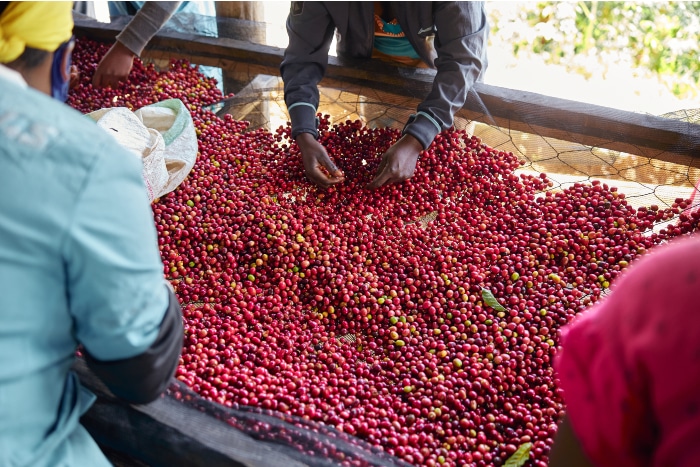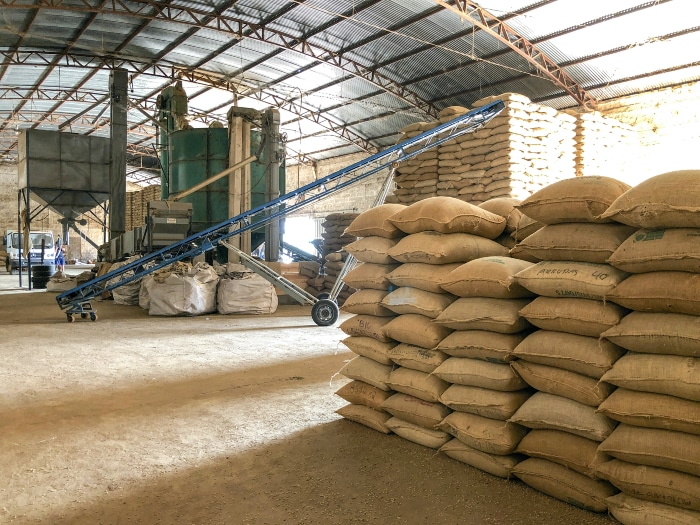In the latest of our interviews with senior trade professionals, we spoke to Raphaelle Hemmerlin from the coffee trader, Sucafina, about her career in commodity trade logistics.
Reading about Raphaelle’s journey is well worth your time – there are great insights about how to succeed and get started in this industry, enlightening stories about her first role in logistics, as well as some specific resources that she recommends to stay up to date and relevant….don’t forget to learn your Incoterms® rules!
Welcome Raphaelle. What is your current role and what does this involve on a day-to-day basis?
Raphaelle Hemmerlin (RH): I am Head of Logistics and Operational Efficiency at Sucafina.
Sucafina is a family-based coffee merchant that has been established for 45 years. Over that time, we have developed a supply chain that starts at the farm gate, all the way up to the gate of the roasting factory. It is a very interesting journey!
My job is to head up and co-ordinate the logistics team across 15 countries and 150 people. I need to produce a coherent logistics strategy for all the different types of coffee trading we are doing. This covers everything from our work with logistics partners and the risk of the commodities along the supply chain, to the financing of the trade and all of the technology involved.
And how long have you been with Sucafina?
RH: This is my second time with Sucafina. Overall, I have been with the company for 13 years. Sucafina was one of my first career experiences and now it continues!
Speaking of your career, can you talk us through your journey up and till this point?
RH: I was a dreamer as a young person; into literature, read lots of books, I wanted to speak 7 languages, and be an international judge or a teacher! This led to my decision to study literature and political science. But I found it wasn’t really a fit for me and I tried a few other things including an internship for a logistics platform.
The internship made me realise logistics is quite interesting - it deals with clients, legal, documents and people – it involves everything! After the internship I signed up to do a Masters in International Transport and Logistics, while working in parallel at Bolloré in their Project Cargo team.
In my first week, I had a very nice mentor who gave me the Incoterms® 2000 book. I remember that he said to me “If you don’t read and understand this book, you won’t work in transport and logistics”. I read the book and fell in love with this industry!
I stayed with Bolloré for 2 years before moving to Geneva and joining Sucafina as a Logistics Coordinator for Commodities in East Africa. This involves complex logistics that start very early in the supply chain with inland movements, then the vessel, then the exchange market for the coffee at the destination.

After 5 very interesting years, I had learned a lot and decided I needed to leave to learn something different.
This is when I moved to BNP Paribas to work as an Account Officer in the Soft Commodities team. It was here that I discovered there was a complete mirror to what I was doing as a commodity trader on the financing side.
I learned about all the risk involved in commodity trading: credit risk, finance and price mitigation, collateralisation etc. And I discovered a whole new set of commodities like sugar, cocoa and fertiliser. It was a great experience, and I am super thankful for it.
However, BNP Paribas is a big machine, and I was just a small part in the middle of 100,000 others. I am very entrepreneurial, so I wanted to do more, excel more.
Throughout my 3 years at BNP Paribas I had maintained my relationship with Sucafina and they offered me a chance to come back and build something new. I have been back at Sucafina for 8 years and I have done something different every year!
I started my second stint as a Senior Logistics Coordinator, the number two in a logistics commodity trade team. My job was to look after all the execution of contracts and ensure the contract is delivered according to customer expectations.
Fantastic. That is a lot of variety! Can you explain some of the key differences between a commodity logistics role and a more traditional logistics position?
RH: Yes, they are very different roles!
There are aspects of commodity logistics that are very time sensitive, for example the aspect of pricing and the exchange market. In addition, the financing for the collateral of the goods is not something you have in a retail logistics role for example. Or in a pure freight forwarding role. Or a shipping line logistics role.
Being at the core of a commodity trade, you need to have a 360-degree understanding that goes beyond logistics. You need to know about the trade aspect, the legal aspect, and the finance aspect. It is a very holistic, complete role.
What career experiences that you have had so far stand out as being particularly transformative?
RH: I think there are three experiences that stand out in shaping my logistics career so far.
First, when I made my initial field trip to Tanzania during my first experience with Sucafina. I was 22, arrived at the port in the middle of the night, drove for 3-4 hours, only to arrive at a pretty bad hotel. I remember thinking to myself, “Oh my god, what I have done? Why did I take this trip?”
But in the morning, I met the team and I discovered there was so much behind what we do and learned the true impact of my job. There are many people counting on you as the logistics person to make sure their work is valued too. That was a very transformative experience for me.
I discovered the real commodity, I touched the coffee and encountered first-hand the people making it. This made me understand that logistics is not the same everywhere. You need to understand and appreciate the local constraints, strengths and weaknesses which will all impact your planning and risk management.

My second important experience was my time at BNP Paribas. Sometimes when you start in a logistics role, you are so involved in the day-to-day logistics that you don’t immediately realise the impact you have on the overall structure of the company. When you have an opportunity to be in the shoes of the financier, you start asking questions in a different way.
For example, I never realised why it’s important for a bill of lading to be sent quickly. Why it is important to be fast when it comes to documentation?
But when you are a financier, you see that it impacts the interest rate, the value of the goods, it impacts the ownership etc.
This opened my eyes to the fact that what you do as a logistics person impacts the whole chain, from the trading to the finance, to the accounting, to the P&L of your company. I would not have understood this so quickly without my time at BNP Paribas.
My time at BNP also taught me that if you are only a financier who doesn’t understand the execution of a trade, then you cannot finance properly. You are making assumptions about how the goods are moving without understanding the true collateral you can give.
For example, if my truck is moving between Varginha in Brazil and the port of Santos and is held only with a truck note, the truck note does not have an endorsement, it doesn’t have an ownership. As a financier you cannot consider this the same way as an original Bill of Lading, which is an endorsable title of ownership of the goods and enforceable legally.
At Sucafina, it is really key for us to teach our partners what the true execution of a trade looks like so they can finance us in the right way…..and not ask crazy things!
Lastly, I would say my third key experience was when I started questioning why my work was so manual about 5 or 6 years ago. I wanted to remove some of the inefficiencies. This questioning increased my interest in digitalisation which has become a big focus for me recently.

If you think about all the value you can create for different people along the supply chain through digitalisation - about how it can make the best use of their capacity and stop them being dragged down by inefficiency - I believe it has tremendous potential. It can have a big impact on farmers, exporters and the people creating the commodity.
***Note from ICC Academy: To learn more about the digtalisation of trade and logistics and identify the right strategy to accelerate your digitisation roadmap, you can enroll in ICC's new Certificate in Digital Trade Strategy (CDTS)***
What is your favourite part of the job?
RH: People. By making people communicate you can solve so many things. So much of my day is spent talking and listening and then summarising what has been agreed to move forward.
I also enjoy that no two days are ever the same. You need to constantly reinvent what goes into contracts. Not one contract or situation will be the same as another one. There are so many components you have to put together in logistics, so when you find a solution that fits all the pieces together, it is very satisfying!
You get the feeling that you are providing real support for different people along the supply chain.
And what is the most challenging part of the role?
RH: Haha I guess the flipside of having so much variety is that the role requires a lot of energy and for you to be able to handle a lot of stress at times. Over the last three years there has not been a minute for a logistics person to sleep!
So, I think the most challenging part of the job is to find a good way to build your resilience. To help others build their resilience and maintain their appetite for the daily reinvention that logistics requires. We all need to find moments to breathe and ensure we don’t become overly stressed.
What advice would you give to someone starting in logistics tomorrow? Are there any key skills or experiences you think they should focus on?
RH: I would tell you the same thing I was told in my first week – ‘read your Incoterms!’.
Another key trait is being open-minded. You will have to deal with a lot of different people from all over the world, all with different cultures and problems for you to solve. Strong communication skills are an essential requirement.
You also need the capacity to zoom in and out.
At times you will need to have a helicopter-level view of everything. At other times you will need to zoom in and get deep into the details of different contracts and produce extremely clear documentation, while understanding that this contract will not be the same as the next one. Then you need to zoom out again to be aware of big geo-political events like what is happening in Ukraine.
To have a successful career in logistics, you need to be open minded and aware of that what is happening around you has the potential to have a big impact on your supply chains.
You have had a lot of variety in your career – you have worked for a forwarder, a commodity trader, a bank and you have international experience. Would you recommend a wide range of experiences to others considering a career in logistics?
RH: Yes, I think variety helps build up your capacity and skills to do different parts of the role. But it really depends on your appetite for different elements of logistics. It is important to understand what your own appetite is.
Maybe you are interested in the types of logistics I have already mentioned like those involved in the initial transformation of a commodity, or the logistics of commodity distribution. These can be very different.
Maybe you are more interested in a support function and managing the insurance claims involved in logistics. If that is the case, then you could focus more on cargo insurance and perhaps work with a broker. This would be an interesting and complimentary experience.
You could also work with a shipping line that makes containers or bulk vessels which would be extremely different. Having the capacity to navigate through different types of transportation and how they can be useful to one another would be useful.
What type of professional development and training do you put in place for your team at Sucafina?
RH: For my team it is very important that they are first trained on the company and our internal processes.
What is the commodity we trade? How do we finance that commodity? What are the rules and regulations that dictate the framework within which our logistics must operate? This training is done at least once every year. Things change very fast.

Then we also train everyone on the tools we need to use. We have appointed internal ‘champions’ of each tool who will make sure anyone new is brought fully up to speed during their onboarding. Team members can also go to the champions for one-to-one sessions.
Finally, we think about how we can develop ourselves as logistics professionals, either horizontally or vertically.
For example, if you wanted to expand your know-how horizontally and learn about different types of logistics, then we might do a rotation and someone who is looking after logistics in APAC might switch to Europe to get a different experience.
If you wanted to develop yourself vertically and improve your leadership skills, then we might invest in external training to ensure our team members stay relevant and are prepared for what they might face in the future.
For example, I just finished an Executive MBA because I thought it was time for me to develop into a better leader and prepare myself to navigate my team through the next 10-15 years. This type of training can require a big investment of time, but it is needed if we want to stay relevant which I always tell my team is important.
If you stick with you what you know, it is not enough. You need to know how the world is evolving. You need to learn new vocabulary, new regulations and better understand the signals of change.
For example, right now we have a strong signal of change around sustainability and your environmental footprint. If you don’t integrate this into your logistics, you’ll miss a big part of what is coming in the next 10 years.
If you don’t integrate digitalisation into your logistics plans, you will miss a big part of what is coming in the next 10 years.
If you don’t keep up with geo-politics then you will miss a big part of what is coming etc etc.
Being aware of these signals is part of the training we want to give our team.
Are there any publications or websites that you read regularly to stay informed?
RH: On leadership I regularly read three different sources:
- Harvard Business Review articles on leadership
- The Insead Knowledge website
- Interesting leadership content on Medium
On the logistics side I read DynaLiners reports a lot as we are very container driven. I also work with freight intelligence platforms like Xeneta to get insights on our freight rates and markets etc.
And finally, I will read coffee and commodity specific material such as the to stay up to date with the industry and any supply and demand issues.
Last question, what excites you most about the future of the industry? How would you try and persuade graduates to enter the commodity logistics industry?
RH: Well firstly I would tell them that the commodity logistics industry needs good people!
In the next 10, 15, 20 years it will require people with a high capacity for analysis and those who can synthesise complex problems into simple solutions.
If you want a role that uses all the value you can produce as a human, logistics is a great career. You, as one person, can have an impact within a team and even on a global level.
Working with commodities means dealing with things that you encounter every day.
The coffee you drink or the sugar you put in it. Or the chair you sit on: somebody had to put the different parts together and bring it to you.
These elements will remain tomorrow but supply and demand may change and bring about new complexities. This is what is exciting - how do you navigate through these challenges?

